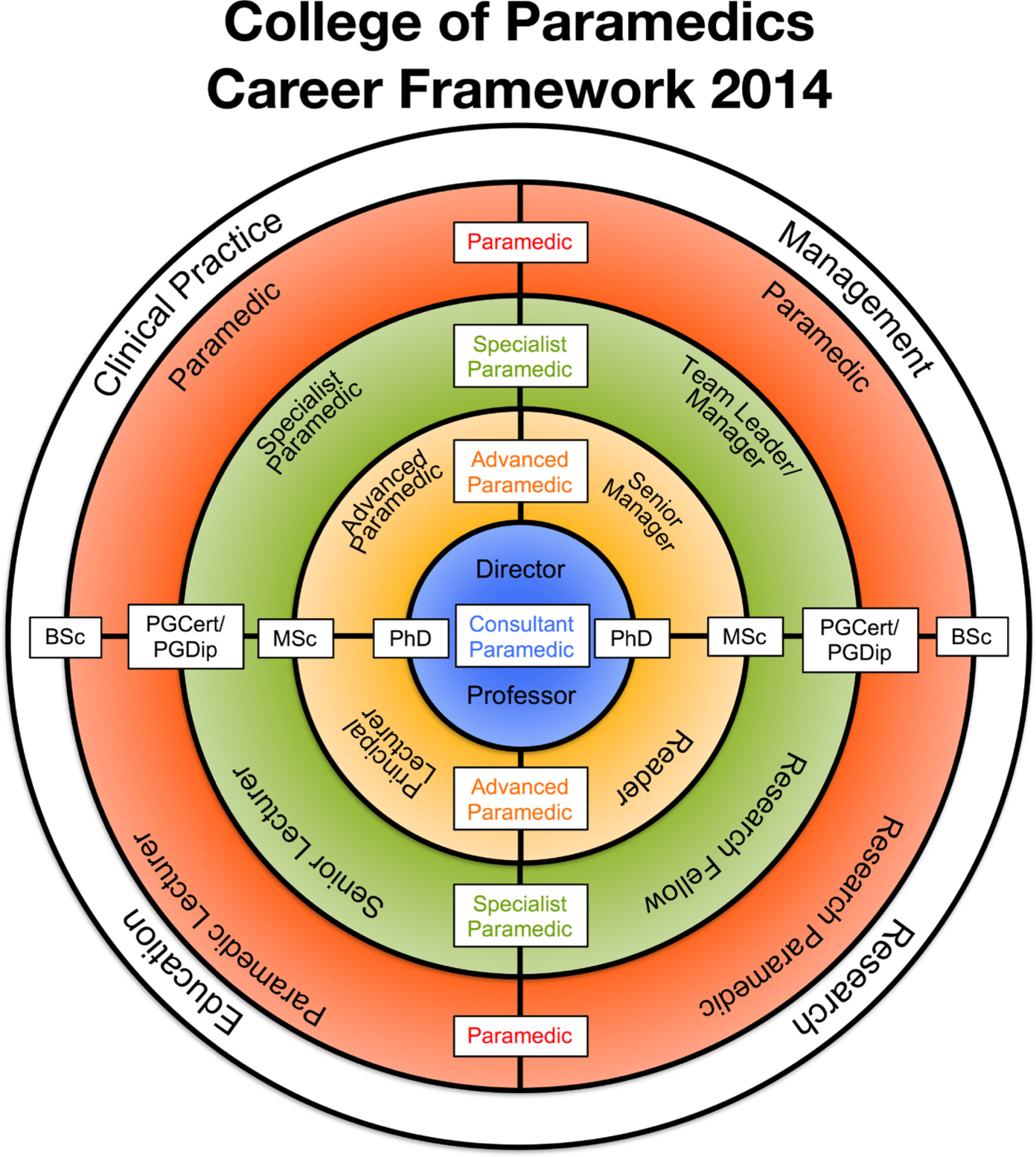The College of Paramedics (CoP) Professional Standards Directorate made the decision to separate the Paramedic Curriculum Guidance (CoP, 2014) from the Paramedic Post-Registration Career Framework. The initial document provides the curriculum for student paramedics to develop the education, knowledge, skills and competencies in order to meet the standards required by the regulatory body to become eligible to register as a paramedic. The latter is published to provide registered paramedics with guidance regarding the appropriate education, knowledge and expertise to facilitate their development along the Paramedic Post-Registration Career Framework pathway.
Since the publication of the Paramedic Curriculum Guidance and Competence Framework (CoP, 2008), the College has continued to address and develop the clinical, educational, managerial and research abilities for post-registered paramedics. These include current and potential career opportunities, some of which—including development into the wider health care of the community—have been appraised and reviewed and, consequently, paramedics are now delivering care and treatments that would have only been undertaken by Doctors 10 years ago (NHS England, 2013). Paramedics are becoming mandated to ensure that they provide patients and service users with the most appropriate treatment at the point of contact and, consequently, receive the care, compassion and expertise in every aspect of urgent and emergency, or critical care.
The CoP has undertaken considerable effort regarding the continuing development of the profession. These activities individually and collectively have been instrumental in the continuing development of the profession. The following illustrations specifically apply: Application for Professional eligibility for the NHS Bursary Scheme—Paramedics (CoP, 2012); Review of the Health and Care Professions Council (HCPC) Standards of Proficiency—Paramedics (CoP, 2013); and the Paramedic Curriculum Guidance (CoP, 2014). The review and publication of these documents is timely in relation to the work currently being undertaken with Health Education England (HEE) regarding the Paramedic Steering Group review of the Paramedic Education Evidence-Based Project (PEEP) (Lovegrove, 2013). The initial report of the HEE Steering Group is due to be published on 10 May 2015.


This third edition of the Paramedic Post-Registration Career Framework has been prepared to provide patients, paramedics, employers, the Association of Ambulance Chief Executives (AACE), local education and training boards (LETBs), higher education institutions (HEIs), the Care Quality Commission (CQC), the Health and Care Professions Council (HCPC), Health Education England (HEE), NHS Education for Scotland (NES), NHS England, the Department of Health, Social Services and Public Safety in Northern Ireland (DHSSPSNI), and other stakeholders with comprehensive national standards concerning the educational standards for paramedics throughout the UK. It represents an important contribution by the professional body to ensure patient safety.
This document explains the career convention and also has the four ‘pillar pathways’ that are available to paramedics throughout their careers. This is demonstrated as a circular diagram within the document to demonstrate how following registration individuals may wish to develop into and across the four pathways as they proceed throughout their career.
Paramedics who wish to develop through the clinical pathway would aspire to develop as follows:
The full Paramedic Post-Registration Career Framework will be published soon and will be free to access via the College of Paramedics website. The executive and council members of the College believe these publications will serve towards ‘leading the development of the paramedic profession,’ significantly during the next decade.

